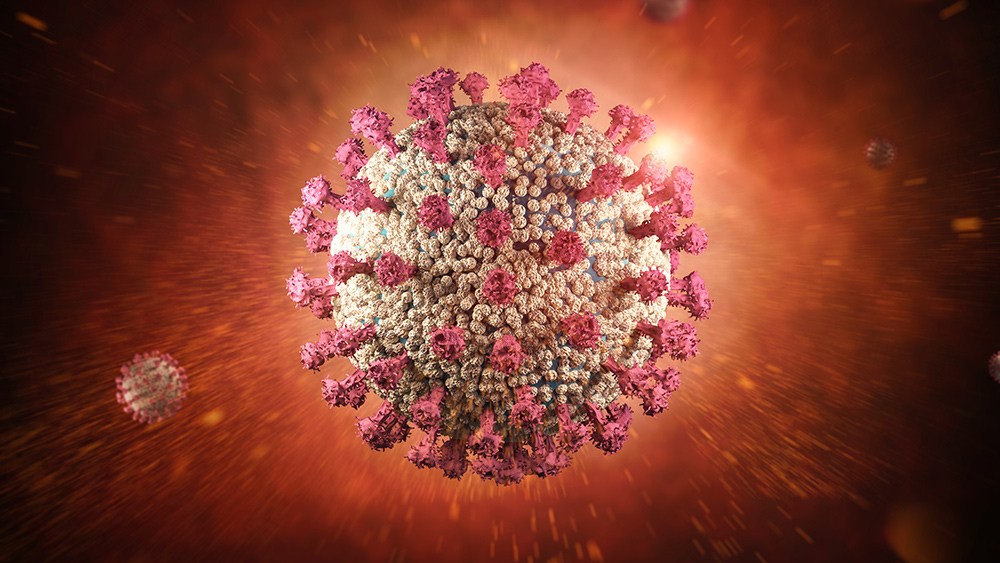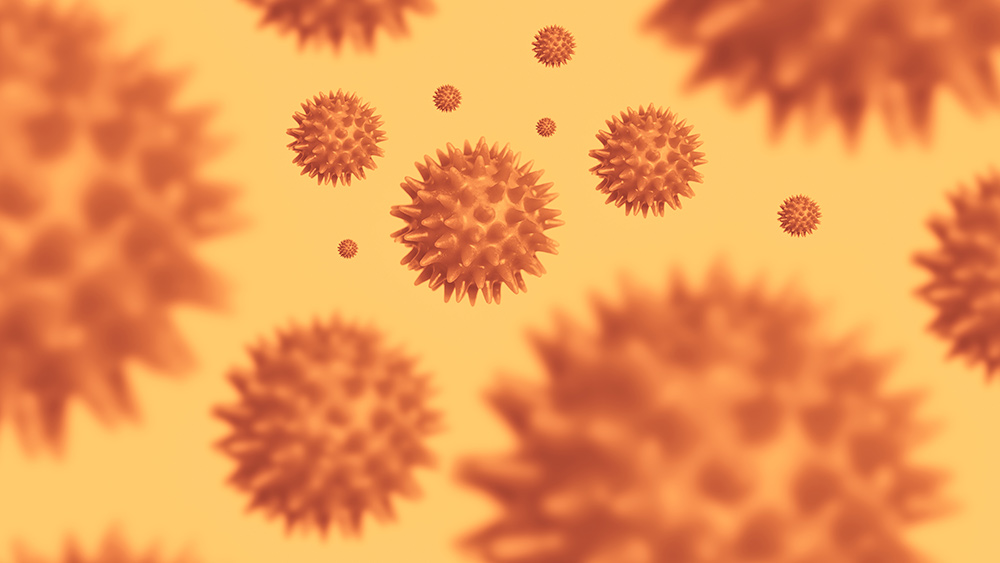Natural remedies and strategies for fighting viruses
07/07/2021 / By Cassie B.

If there’s one thing the coronavirus pandemic has taught us, it’s the power that viruses have to cause widespread death and upend life in every corner of the world. That’s an impressive feat for something so tiny.
Scientists have worked hard to come up with vaccines to fight viruses, but they’ve had mixed results. One only needs to look at the flu vaccine to see how challenging it is to get these efforts right. And while there’s a lot of hope the COVID-19 vaccines will put an end to the problems we’re currently facing, we haven’t seen anything so far to indicate there will be safe, extensive long-term protection.
So, what can you do if you want to avoid viruses? The first step, of course, would be to avoid contact with the source of its spread, whether that’s people, animals or even vegetables. But if there’s another thing the pandemic has taught us, it’s that staying at home and avoiding contact with the rest of the world gets boring quickly, and it’s also a recipe for serious mental health problems and financial distress.
Thankfully, there are a few natural approaches that can provide you with protection from certain viruses. Here’s a look at some of the best options.
Vitamin D3
Vitamin D3 is one of those overachieving vitamins that is good for many things, and fighting viruses is one of them. A double-blind placebo study found that it could fend off the flu, reducing people’s risk by 58 percent. Plus, it can help treat virus and flu infections. It does this by helping our bodies create an antibiotic protein known as cathelicidin, which can kill not just viruses but also fungi, parasites and bacteria.
Many people are deficient in this vitamin. Sunshine is one of the best sources – it doesn’t supply you with the vitamin, but it does prompt your body to create it. Unfortunately, skin cancer fears have people lathering up in sunscreen every time they step outside, which stops them from getting the vitamin D they need. It’s important to check your levels and make sure you’re getting enough of this important vitamin.
Elderberry
If it’s influenza A and B you’re worried about, you might be interested in a study in the Journal of Alternative and Complementary Medicine that found the herb is a safe and effective treatment for both viruses. Scientists say that compounds in elderberries directly inhibit the virus from entering human cells and replicating while strengthening people’s immune response to the virus.
Vitamin C
Another powerful vitamin on many fronts, vitamin C’s antiviral effects against flu viruses have been demonstrated in more than 30 clinical studies across several decades. It inactivates the virus and boosts the immune system so it can continue to suppress it. Many types of viruses respond to vitamin C, from bird and swine flu to SARS and COVID-19.
Silver
A study in the Journal of Nanotechnology demonstrated that silver nanoparticles can kill HIV-1 and many other viruses. In the study researchers incubated HIV-1 and found that silver particles killed 100 percent of the virus in just three hours. It kills viruses by binding to their membranes, limiting their oxygen supply until they suffocate. It also binds to the virus cell’s DNA, stopping it from multiplying. Moreover, by blocking the virus’s ability to find a host cell on which to feed, it stops viruses from transferring from person to person.
The prospect of contracting a potentially deadly virus is a frightening one, but the good news is that we have the power to reduce our vulnerability by taking care of our health and seeking natural protection strategies to stack the odds in our favor.
Sources for this article include:
Submit a correction >>
Tagged Under:
alternative medicine, coronavirus, covid-19, elderberry, flu, herbal medicine, natural antivirals, natural cures, natural medicine, remedies, silver, viruses, vitamin C, vitamin d3
This article may contain statements that reflect the opinion of the author
RECENT NEWS & ARTICLES
COPYRIGHT © 2017 Antiviral.News
All content posted on this site is protected under Free Speech. Antiviral.news is not responsible for content written by contributing authors. The information on this site is provided for educational and entertainment purposes only. It is not intended as a substitute for professional advice of any kind. Antiviral.news assumes no responsibility for the use or misuse of this material. All trademarks, registered trademarks and service marks mentioned on this site are the property of their respective owners.




















